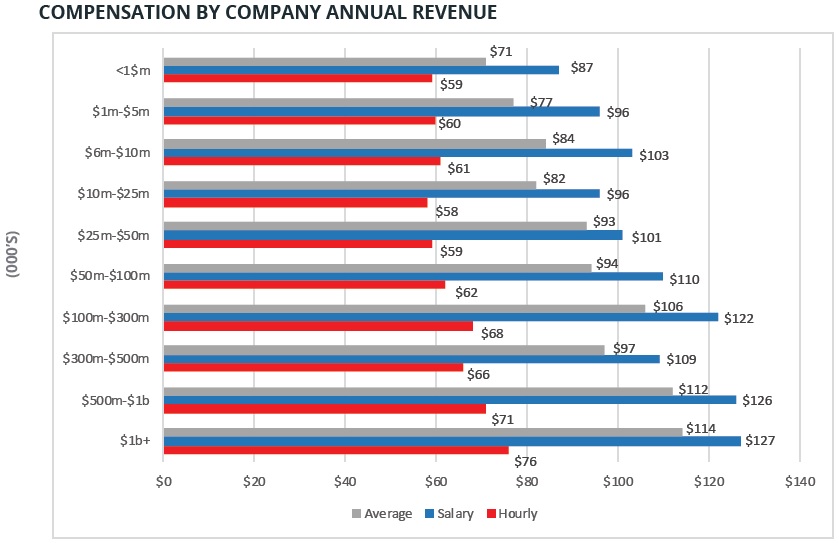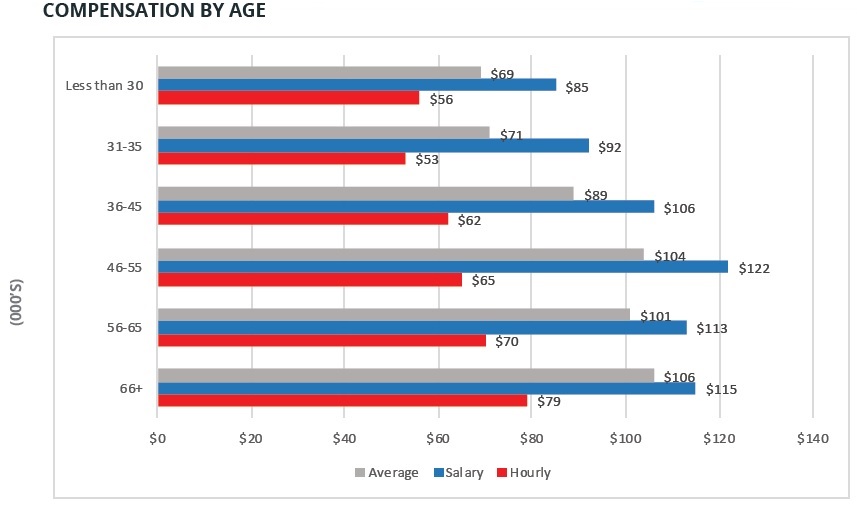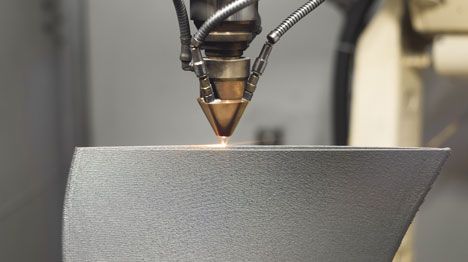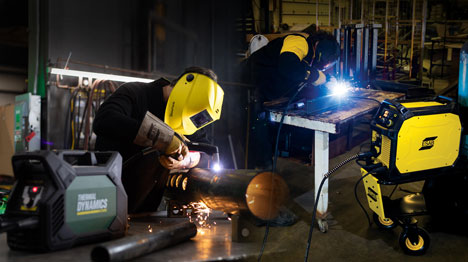The State of Salaries and Hourly Pay in Manufacturing
Did you get a raise in 2018? Are you satisfied with your job? How are women doing with pay equity in manufacturing? See where things are right now.
Did you get a raise in 2018? Are you satisfied with your job? How are women doing with pay equity in manufacturing? See where things are right now.

What’s the state of hourly pay, salaries and job satisfaction in manufacturing? We explore two recent manufacturing job salary guides and industry research to gain the most complete picture. The skills gap is always present—but it also means the competition for experienced engineers, machinists and CNC programmers can be fierce.
Salary is not the only factor workers consider when looking for a job, but it’s among the most important. Manufacturing jobs are returning to the U.S., unemployment is at its lowest rate in decades and demand for skilled workers is increasing. With the economy as a whole reporting positive growth in salaries, have manufacturing jobs seen the same levels of improvement? And what other factors affect employee compensation in this sector?
“Despite a significant shortage in skilled talent, the labor market continues to grow,” says Ahu Yildirmaz, vice president and co-head of the ADP Research Institute, in a recent release. “We saw significant gains across all industries. … We continue to see larger employers benefit in this environment as they are more apt to provide the competitive wages and strong benefits employees desire.”
To drill down on wage and benefits trends in the manufacturing industry, we examine two reports and surveys. One from the Society of Manufacturing Engineers (SME), which recently surveyed nearly 700 manufacturing employees including process engineers, CNC programmers, machine operators and plant operations managers. The 2018 Manufacturing Compensation Report, also sponsored by the Arconic Foundation and the SME Education Foundation, was released to coincide with Manufacturing Day on Oct. 5. Another report, the 2018 IndustryWeek Salary Survey, was made up of responses from more than 600 manufacturing executives and managers and focused on the top end of salaries.
One manufacturing job title in high demand are CNC machinists. Learn everything there is to know about the role in "Manufacturing Guide: How to Become a CNC Machinist."
SME respondents included about one-third hourly employees and two-thirds salaried employees. The survey asked about wages, salaries, bonuses, and other compensation, and the answers were categorized according to manufacturing sector, gender, education level, and region of the country. The survey also asked about job satisfaction and hiring plans for employers.
The SME report was designed to help current employees recognize their true earning potential today and for years to come. It also can help students and anyone looking to enter manufacturing as a career to better understand the compensation they might expect.
"There are multiple paths to success and good-paying careers at all levels of manufacturing, and the good news is these jobs are in high demand,” says Christopher Barger, senior director of communications, SME. “Individuals who pursue a career in manufacturing have several options to gain solid training education, be it entering the workforce from high school through apprenticeships or internships, attending a vocational school and getting certifications, or attending community colleges, and obtaining associates or four-year degrees.”
Are you recruiting potential talent early enough? Read “How Machinist Apprenticeship Programs Can Help the Skills Gap.”
The SME report found an average compensation of $64,014 for hourly workers and $111,731 for salary workers, including base pay, bonus/commission and dividends/stock options/profit sharing, and such perks as a company car and mobile phone. Following the trend in the rest of the country, 68 percent of hourly workers and 73 percent of salary workers reported a wage increase in the last year.
The top end of salaries saw a slight dip in 2018, according to the IndustryWeek survey. The average salary for a manufacturing manager “in the past year was $118,500—down about 6 percent from the previous year.”
Not surprisingly, the SME report found that management compensation is at the upper end of the average compensation range, with manufacturing engineering management at $124,477 ranking as the highest-paying job function. Product Design & Development was the second-highest job category at $105,348, followed by manufacturing production management at $102,674 per year.

In nonmanagement job functions, manufacturing engineering department employees earned an average of $91,672, while manufacturing production department employees earned $63,548.
At the top end of the managerial salary spectrum is the vice president of manufacturing, with a salary of $187,100, per the IndustryWeek survey. The highest average salary for managers is found in the medical device industry at $142,500.
Where were the biggest salary drops and gains? The textile and apparel segment saw a decrease of 29 percent. Conversely, the petroleum and coal segment saw the largest increase at 22.5 percent, per IndustryWeek.
“Manufacturing managers in the South Central United States earned the highest average salary, at $125,000,” reports Laura Putre of IndustryWeek. “The lowest average salaries were in the Southwest, at $104,000.”

What’s your take? Take to your peers in the community forum.
Job Satisfaction in Manufacturing Is Strong; Skills Gap Tops the Challenges
Asked about job satisfaction, 67 percent of workers said they were satisfied or very satisfied with their current employment in the SME report. Nearly three-quarters of respondents report that their company is likely or very likely to hire additional employees. The IndustryWeek survey found similar results: 69 percent of manufacturing leaders are satisfied or very satisfied with their jobs—though that is down slightly from 72 percent in 2017 and 74 percent in 2015.
Nearly three-quarters of manufacturing workers surveyed by SME say that their companies are likely or very likely to hire additional employees over the next year. A competitive market provides a great opportunity for those building a career in manufacturing, whether they stay at their existing employer or move to a new one.

Despite more job openings than available workers at manufacturers throughout the country, which typically drives up salaries and other incentives designed to lure candidates, job satisfaction is surprisingly stable. Only 18 percent are likely or very likely to look for a new job this year, according to SME.
“Overwhelmingly, the No. 1 challenge for respondents was finding qualified people to fill positions,” notes Putre of IndustryWeek. “They also repeatedly mentioned issues with meeting government regulations and leadership struggling to understand technology and integrate it into operations.”
Are you struggling to find the talent you need? Talk about the skills gap with your peers in the Better MRO forums!
Women represent a critical solution to the skills gap that is threatening industry growth, according to Jeff Krause, chief executive officer at SME. In a recent SME article, Krause quotes the Bureau of Labor Statistics’ findings that women accounted for more than 80 percent of manufacturing employment growth in the month of May. Furthermore, in 2017, women saw their best year of growth in manufacturing employment in 20 years—and by June of this year, the number of women in manufacturing already had grown three times more than that of the same period last year.
The SME Manufacturing Compensation Report found that total compensation in manufacturing jobs is currently 12 percent higher for men than for women. Though far from ideal, this compares favorably with the overall economy, where women are compensated almost 18 percent less than men.
The report suggests that starting salaries are the cause of this discrepancy. Once onboard, pay raises, bonuses and other compensation for women employees in manufacturing is on par with their male counterparts. Women also reported a slightly higher increase in total compensation in the past year, with an average $4,230 increase for women, compared with $4,002 for men.
A competitive starting pay wage can help attract more women to manufacturing, helping to address the overall manufacturing skills gap, according to the report.
“It is up to us to solve the skills gap challenge, and we cannot do that without women,” Krause says. “The continued growth of women in manufacturing will play an important role in the advancement of our industry.”




